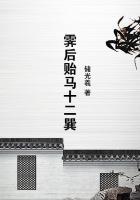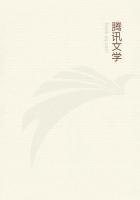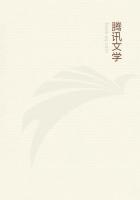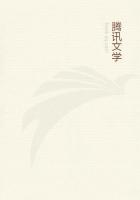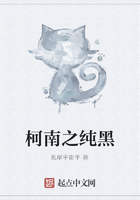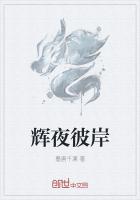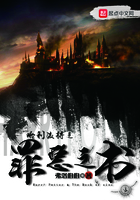As King proceeded, Jasmine felt that her difficulties were on the increase. It was impossible that she should explain her position in full, and she had no sufficient reason at hand to give for rejecting the proposal made her, though, as the same time, her annoyance was not small at having such a matter forced upon her at a moment when her mind was filled with anxieties. "Then," she thought to herself, "there is ahead of me that explanation which must inevitably come with Wei; so that, altogether, if it were not for the deeply rooted conviction which I have that Tu will be mine at last, when he knows what I really am, life would not be worth having. As for this inn-proprietor, if he has so little delicacy as to push his cousin upon me at this crisis, I need not have any compunction regarding him; so perhaps my easiest way of getting out of the present hobble will be to accept his proposal and to present the box of precious ointment handed me by Wei for my sister to this ogling love-sick girl." So turning to King, she said:
"Since you, sir, and your cousin have honoured me with your regard, I dare not altogether decline your proposal, and I would therefore beg you, sir, to hand this," she added, producing the box of ointment, "to your honourable cousin, as a token of the bond between us, and to convey to her my promise that, if I don't marry her, I will never marry another lady."
Mr. King, with the greatest delight, received the box, and handing it to the waiting-woman, who stood expectant by, bade her carry it to her mistress, with the news of the engagement. Jasmine now hoped that her immediate troubles were over, but King insisted on celebrating the event by a feast, and it was not until late in the afternoon that she succeeded in ****** a start. Once on the road, her anxiety to reach Peking was such that she travelled night and day, "feeding on wind and lodging in water." Nor did she rest until she reached a hotel within the Hata Gate of the capital.
Jasmine's solitary journey had given her abundant time for reflection, and for the first time she had set herself seriously to consider her position. She recognised that she had hitherto followed only the impulses of the moment, of which the main one had been the desire to escape complications by the wholesale sacrifice of truth; and she acknowledged to herself that, if justice were evenly dealt out, there must be a Nemesis in store for her which would bring distress and possibly disaster upon her. In her calmer moments she felt an instinctive foreboding that she was approaching a crisis in her fate, and it was with mixed feelings, therefore, that on the morning after her arrival she prepared to visit Tu and Wei, who were as yet ignorant of her presence.
She dressed herself with more than usual care for the occasion, choosing to attire herself in a blue silk robe and a mauve satin jacket which Tu had once admired, topped by a brand-new cap.
Altogether her appearance as she passed through the streets justified the remark made by a passerby: "A pretty youngster, and more like a maiden of eighteen than a man."
The hostelry at which Tu and Wei had taken up their abode was an inn befitting the dignity of such distinguished scholars. On inquiring at the door, Jasmine was ushered by a servant through a courtyard to an inner enclosure, where, under the grateful shade of a wide-spreading cotton-tree, Tu was reclining at his ease. Jasmine's delight at meeting her friend was only equalled by the pleasure with which Tu greeted her. In his strong and gracious presence she became conscious that she was released from the absorbing care which had haunted her, and her soul leaped out in new ******* as she asked and answered questions of her friend. Each had much to say, and it was not for some time, when an occasional reference brought his name forward that Jasmine noticed the absence of Wei. When she did, she asked after him.
"He left this some days ago," said Tu, "having some special business which called for his presence at home. He did not tell me what it was, but doubtless it was something of importance." Jasmine said nothing, but felt pretty certain in her mind as to the object of his hasty return.
Tu, attributing her silence to a reflection on Wei for having left the capital before her father's affair was settled, hastened to add:
"He was very helpful in the matter of your honoured father's difficulty, and only left when he thought he could not do any more."
"How do matters stand now?" asked Jasmine, eagerly.
"We have posted a memorial at the palace gate," said Tu, "and have arranged that it shall reach the right quarter. Fortunately, also, I have an acquaintance in the Board of War who has undertaken to do all he can in that direction, and promises an answer in a few days."
"I have brought with me," said Jasmine, "a petition prepared by my father. What do you think about presenting it?"
"At present I believe that it would only do harm. A superabundance of memorials is as bad as none at all. Beyond a certain point, they only irritate officials."
"Very well," said Jasmine; "I am quite content to leave the conduct of affairs in your hands."
"Well then," said Tu, "that being understood, I propose that you should move your things over to this inn. There is Wei's room at your disposal, and your constant presence here will be balm to my lonely spirit. At the Hata Gate you are almost as remote as if you were in our study at Mienchu."
Jasmine was at first startled by this proposal. Though she had been constantly in the company of Tu, she had never lived under the same roof with him, and she at once recognised that there might be difficulties in the way of her keeping her secret if she were to be constantly under the eyes of her friend. But she had been so long accustomed to yield to the present circumstances, and was so confident that Fortune, which, with some slight irregularities, had always stood her friend, would not desert her on the present occasion, that she gave way.

